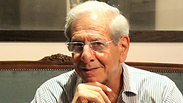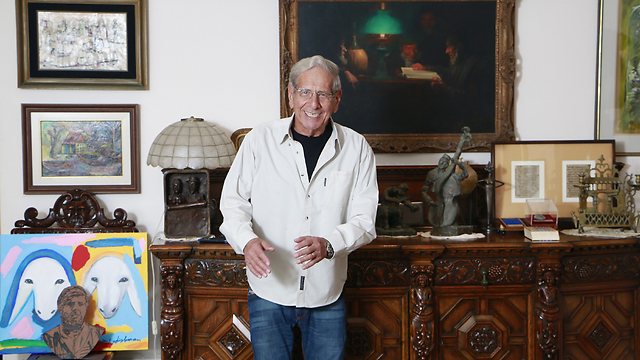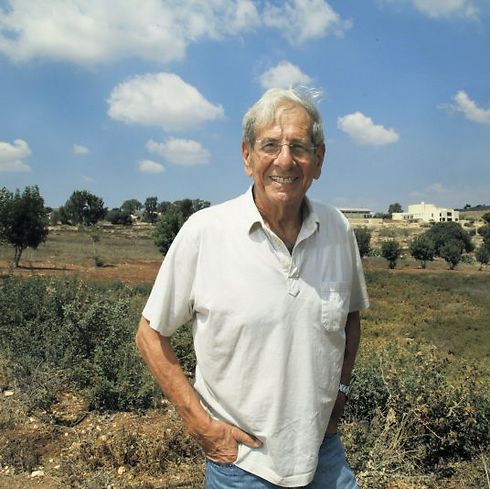
Veteran actor Chaim Topol, best known for playing the role of Tevye the milkman in both the stage and screen versions of "Fiddler on the Roof," will be awarded the Israel Prize for lifetime achievement on the state's upcoming Independence Day.
But despite a highly impressive résumé – which also includes his breakout role of Sallah Shabati, parts in Hollywood productions such as "Flash Gordon" and "For Your Eyes Only" from the James Bond series, and stage roles in London ("Othello," "A View from the Bridge," "Romeo and Juliet") – Topol, who celebrates his 80th birthday this year, doesn't have the mannerisms of a star. And without the services of a producer or publicist, he schedules our interview himself, apologizing for taking so long to find his diary "among all this mess of newspapers and flowers."
We meet at the house in Tel Aviv that Topol has called home for more than 60 years. Resting on the large dining room table is a volume of the Talmud.
"As a child," Topol tells me, "I was sent to a religious school, despite the fact that my parents were secular. And still today, every Thursday evening, I study the Talmud with two friends. Wherever I am in the world, in London and New York too, I've always found someone to study with."
People have been saying for years that you're a right-winger, at least in relation to your colleagues in the field.
"When have you ever heard me say I'm on this side or that side? I don't define myself; people like to apply all sorts of labels."
You weren't among the artists that refused to perform in the territories.
"I don't boycott anyone. Others have the right to do whatever they want, but I don’t like it when people speak so adamantly. I'd like to see a little more doubt in us all, in our leaders too, on both sides."
Are there moments when you are concerned about the future of the country?
"I'm not concerned. I think we have an army that can – despite the mistakes that are made – protect us. The thing that worried me during the recent election campaign was that various former generals and office holders, who are now retired and no longer know exactly what is going on in the security system, suddenly started talking differently from when they were a part of it.
"I understand the yearning for peace. I, too, yearn for peace. At the Jordan River Village (a holiday camp, established by Topol, for children suffering from serious illnesses and life-threatening conditions), I see how Arab, Jewish, Christian, Muslim and Circassian children are friends and help one another, because they know the pain one carries when one is sick. In other words, it's possible – if they don't mess with your head and tell you that this boy is no good, and that boy is nice so you can be friends with him. When the politicians aren’t in the picture, there aren't any problems. Whenever I drive away from the Jordan River Village, I am convinced that peace is possible and that I will get to see it."
Despite the security problems?
"When it comes to the issue of security, scare tactics come into play. Some leaders think that in order to get elected, they have to sow fear. We're constantly being threatened with how terrible and final everything is.
I definitely think we have to be cautious and can't be arrogant, and that it's important for us to be strong – because, after all, storms are raging around us, and I read that they are killing one another in the hundreds and thousands; and these are our neighbors.
"But I am still counting on peace. I don't want my grandchildren to live in a reality of war and more war. I hope that we do achieve peace and that people wise up – all the partners to this region, not just us. I hope that we have a partner for dialogue, and that among us is the right leader to do it."

















